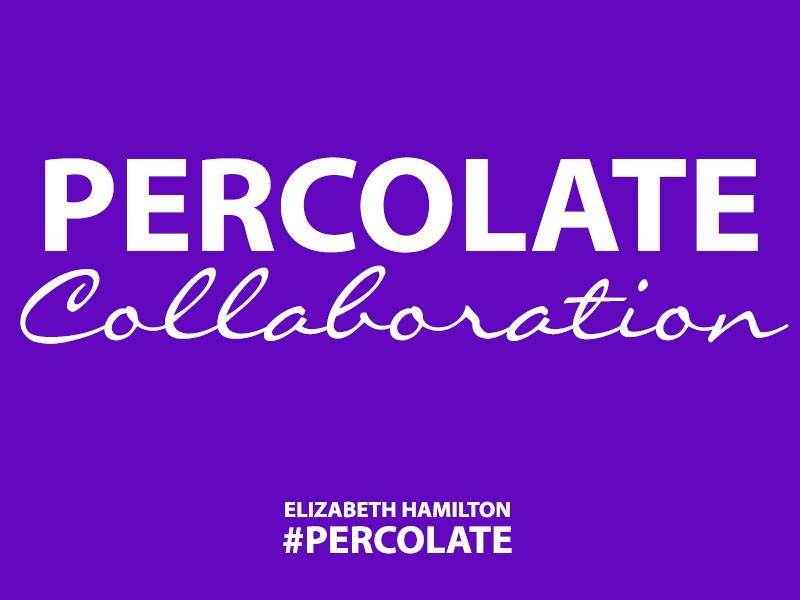As the CEO of The Best Ever You Network, my life is mostly one giant collaboration. I spend much of my time and energy partnering and collaborating with people from all over the world. Whether it’s a book I am writing, a blog idea for the website that needs an expert, a radio show I’m co-hosting, or books, posts, videos, shows and blogs we’re co-promoting, I’m collaborating and partnering with people from all walks of life. I would say there are very few things I do alone when it comes to this business. My family life is much the same way. Having been married for nearly 20 years and having four sons, life is all about helping each other be our very best.
I’ve had some wonderful partnerships and collaborations, some so-so ones and some real doozies. I even almost lost my business in 2009 to an internet predator. Here are some tips to help you partner, collaborate and bring your best work together and out into the world.
1. Only partner or collaborate with someone or people who agree to finish the entire project, including promotion and collaborate with people you actually know. First, as far as the internet goes, it’s very dangerous to partner and collaborate with people you haven’t met in person for real. It’s even hard to collaborate with people you know and see! In addition to other questions you ask, I know I’ve often found myself wanting to know about their behavior with food, drugs, alcohol, prescription meds, depression tendencies and more. Check your references carefully and thoroughly, just as much like you would check to hire someone to do work on your house or watch your children. It’s often because of these behaviors and issues that partnerships and collaborations fail and the projects fail alongside the issues.
2. Who issued the invitation to collaborate? Make it a known rule of yours that the person who did the initial invite ultimately owns the project and understand you are a contributor unless otherwise agreed. There is a difference between co-owner and contributor. A person who wants to be a co-owner will ask for a portion of your company, for example. Spot manipulation. This is a type of person who agrees with everything at first and then along the way tries to gain control of you, your ideas, your beliefs, your behavior and guess what? – The project or your business.
3. Let the thief run away with the idea. Many times people enter into collaborations and partnerships and somehow-somewhere-someone along the way begins to think they thought of the original idea, not you. Even if additional ideas come up in the making, they belong to the project, not the people and often times belong to the original person who extended the invitation to collaborate. Often you’ll see this person even run with your idea and try to copy it or change it to make it their own. Let them. You have plenty more ideas. Put your own shoes on and run in the other direction from the idea thief. It can be a growth moment for someone to step away from you and do their own thing. Consider yourself a mentor and move on. Apply love and compassion to the situation.
4. Understand this all may not work out. I want to think the best of everything and everyone. It would be so nice if all was rosy 24/7. But things just aren’t always that way. Go back to #2 and make it clear from the start, that if things fall apart, your original work is yours and yours alone. The person who it isn’t working for gets to walk away. If they copy you, see #3. Life is too short for bickering. Peace be with you and good luck. Consider a contract or collaboration agreement from the start. Protect yourself and your ideas and the project.
5. Nix the credit fight. Sometimes your name comes first, sometimes mine comes first or if you are a collaborator, understand yours comes second and probably for a reason, especially if you are joining a project already in motion. If you are getting pushy and edgy with that, it might be time for you to either look at your self-esteem or move along and form your own brand of whatever it is you are trying to do. If you are the one insisting your name always come first, perhaps you too need a reality control check. If you have low self-esteem, you are predisposed to believe that you are unworthy. This may make you feel unworthy of love, genuine affection, praise, or success and in need of that credit.
6. Put the project first. Awesome collaborators and partners often enter into a leap of faith. You don’t know the end result and you can’t force the future or rush the stage without harm to all and the project. Things often need to percolate. Sometimes it can feel like a current has you and you are trying to swim to the shore for safety. If things don’t work out exactly as you first envisioned, step back and understand the lessons you are being taught and view the project with gratitude instead of attitude. You may need to step away if you can’t handle ambiguity.
7. Know yourself. If you come from a lawyer background where everything needs to be dotted and crossed, ambiguity and leaps of faith aren’t probably a great fit for you. If you need control of a situation and everything figured out and ironed out, maybe you should be the Leader/Asker instead of the contributor and understand your leadership qualities. Sometimes it’s wonderful to be a contributor and be a mentor in a lesser, non-controlling way if you can handle not taking the full, control credit. Don’t pull the lawyer card unless something is life-threateningly off. Lawyers most often times make things worse. Keep things in perspective.
8. Understand the role of money. So many people collaborate and partner on projects without getting paid upfront or during the project. The payoff is in the end or there may be no payoff at all. In fact many things end in a loss. One person told me once that 1 out of 12 of your ideas may or may not succeed. If money is your game, do not enter into collaborations that are not paying you. Period. No exceptions. If you can’t stay patient or are physically, mentally, financially and/or emotionally unable to enter into a money-free collaboration, do not do it. Also consider your demands for money may be unreasonable and adjust from there or consider taking a lead role in getting funds so everyone gets paid. Be part of a solution if you really want part of the project. Dimes and quarters don’t fall from the sky because you stomp your feet and demand them.
9. Understand the rules and how the project changes along the way. What you started with is almost never what you end up with, especially if the project takes off and is popular or gets accepted by a larger entity. That idea you first had may change and in order to make the project successful, you may need to readjust. One person may get picked up for something larger while a fellow partner isn’t. Go back to #2 and understand your role and who invited who to collaborate or partner up. Brush up on your maneuvering skills. You need them as a key asset. I was recently in a partnership where the project finished and the other person tried to change the rules at the end and tell me, in a rather aggressive fashion that they, from a certain point forward, wanted to charge me $250 an hour to help promote the product. I was baffled and took a giant leap back to recognize that the person I had partnered with was having financial difficulties and trying to blame me for time spent on the project that they had agreed to do all along. Remember, money is a hot button for issues. See #8.
10. If things fall apart understand the fallout behaviors that commonly happen. I’d say unprofessional behavior and emotional behavior top the list of fallout issues. Like a fight in a dissolving marriage over a child, the issues may be and feel similar. Often the wolf appears that was once a cute sheep and you wonder where the aggressiveness instead of assertiveness went and why you didn’t spot the hidden aggressor the entire time. Don’t beat yourself up in addition to them already doing it for you. But understand the behaviors that mostly commonly appear:
These include
-Bad-mouthing you to others
-Trying to regain credit
-Approaching whoever will listen to the negativity
-Trying to shift the loyalty of others
-Threats
-More manipulation
-you get the idea, just negative, cringe-worthy stuff.
One of the best ways to help curtail this situation is a Collaboration Agreement in the beginning. It can spell out things like goals, leadership, ownership, money, values, assumptions, behavior policies and more. You’ll know up front if you agree or not and this way as the project changes, you always have this baseline agreement in place.
Over the years in dealing with people, crap happens. When it does, let it not be you acting in this fashion. Rather, be the one who takes the higher ground. Disengage, tune-out, move on, take care of yourself, lick the wounds and allow time to continue on. Also, do some thinking on what role you played in all of this as there is some responsibility on your part also.


